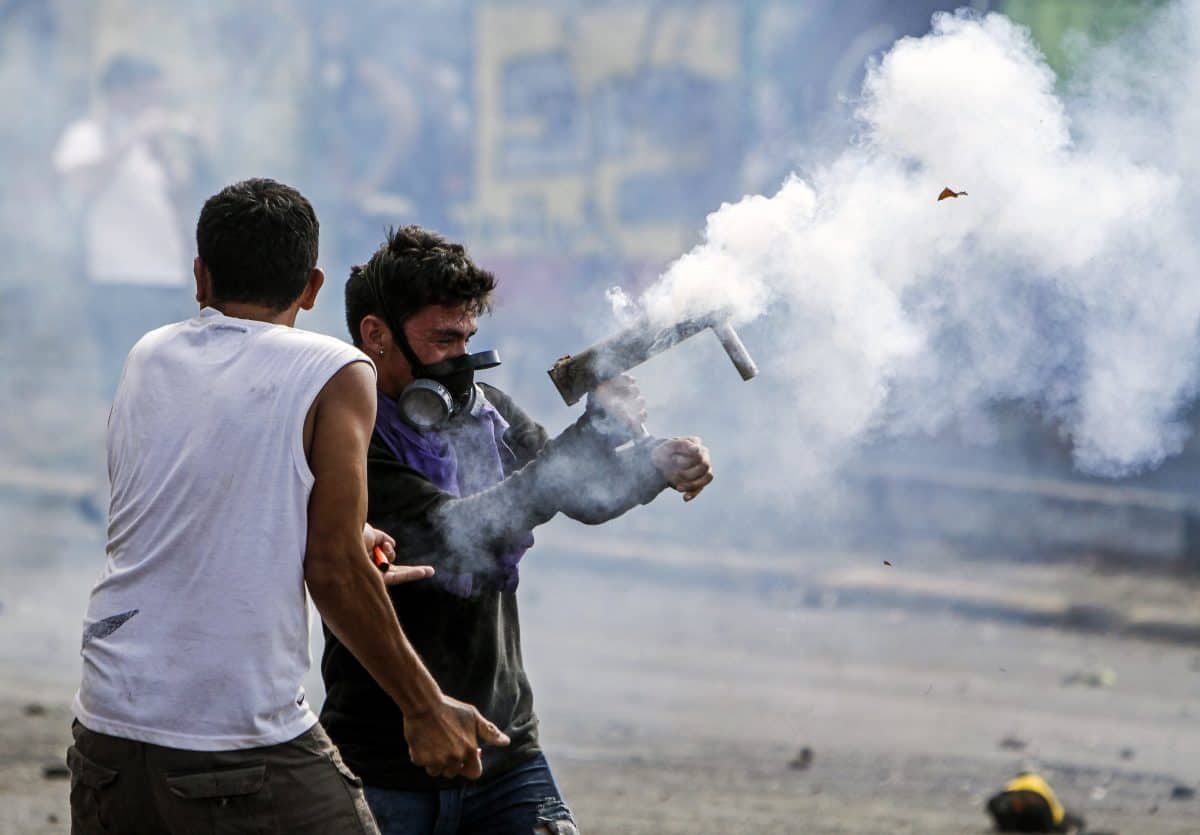Nicaragua has been rocked since April 18 by anti-government protests which have been severely repressed by the authorities, leaving nearly 100 dead and hundreds more wounded.
The protests were initially triggered by now-aborted reforms to the near-bankrupt social security system.
However, the unrest quickly broadened into a rejection by many Nicaraguans of President Daniel Ortega, who is seen as autocratic.
Ortega, the former guerrilla leader of the Sandinista revolution, was in power from 1979-1990, before returning in 2007.
His wife Rosario Murillo is vice-president and several of Ortega’s children hold key positions.
Controversial pension reform
On April 18, the government presents a plan to increase how much employees and companies pay into the social security fund, while cutting benefits by five percent, as recommended by the International Monetary Fund (IMF).
In several towns student-led protesters vent fury at the plan. Demonstrations continue in the coming days and are harshly repressed.
On April 22, Ortega scraps the pension reform in a bid to end the protests, which have left 25 dead in five days, amid clashes and looting.
Amnesty: Nicaraguan government using mobs to suppress opposition
Ortega under pressure
Withdrawal of the reform fails to pacify protesters.
On April 23, tens of thousands of people – workers, students, farmers and businessmen – demonstrate in the capital Managua demanding an end to the repression and some call for Ortega’s departure.
The United Nations on April 24 calls on Nicaragua to carry out “prompt, thorough, independent and transparent investigations into these deaths,” saying a number of the killings may have been “unlawful.”
Tense dialogue
As protests intensify, the army on May 12 distances itself from Ortega, saying it will not prevent people from taking part in protests.
On May 16, tense talks open in Managua between Ortega and opposition groups, mediated by the Catholic Church, as the death toll rises to 58.
The Church calls off the talks after a week, saying: “There was no consensus today between the parties.” The death toll rises to 76.
On May 28, the government and opposition agree to resume talks. However, a day later the business sector drops Ortega. The employers’ organization Cosep calls on its representatives to immediately resign from management posts in state bodies and enterprises.
Amnesty International says Nicaragua is using paramilitary groups to suppress demonstrations.
On May 30, Nicaragua’s richest man, Carlos Pellas, calls for early presidential elections.
Ortega vows to remain in power. The latest spasm of unrest between supporters and opponents of Ortega bring the overall death toll to 98.






